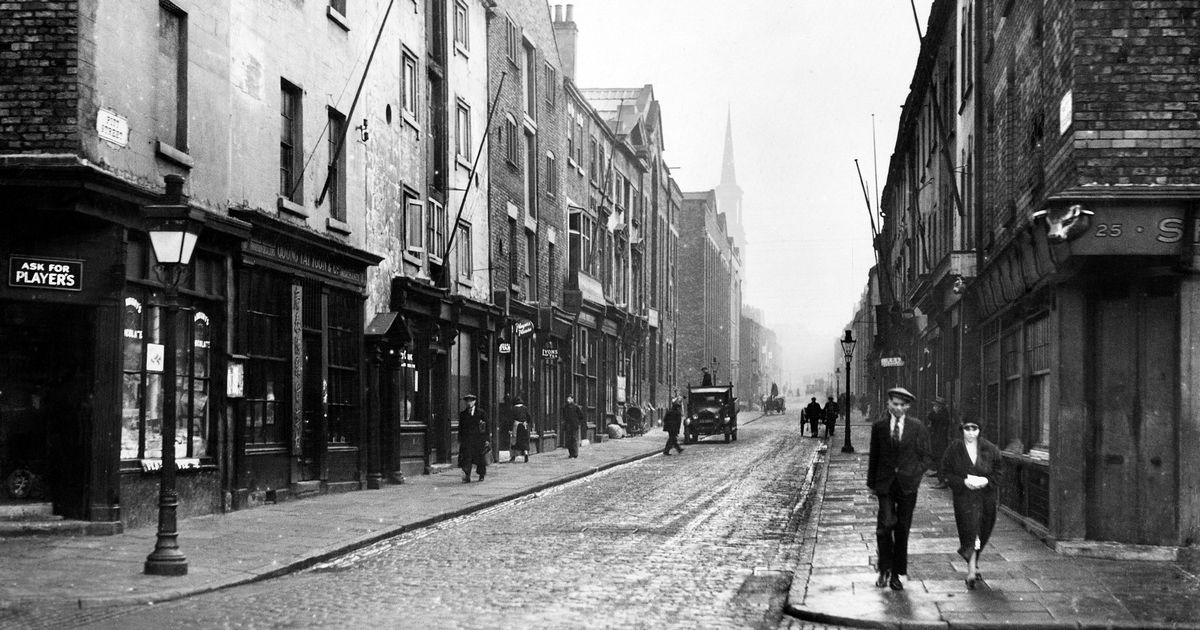Many men who made lives in Liverpool were never seen again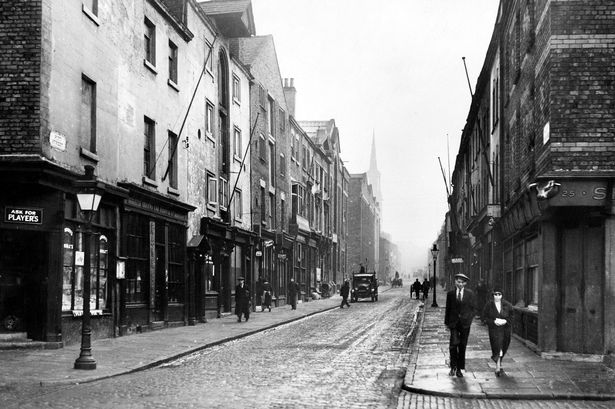 Pitt Street in Chinatown in the 1930s(Image: Mirrorpix)
Pitt Street in Chinatown in the 1930s(Image: Mirrorpix)
It’s now been 80 years since the end of WWII – but so many of Liverpool’s stories remain untold. Earlier this month, the country marked VJ Day, also known as Victory over Japan Day, on August 15, commemorating Japan’s surrender to the Allies, which in effect ended the war.
Through the generations, this part of history that took place outside of Europe has been less prominent. And today, not much is known about how pivotal China was in supporting European efforts, particularly in taking on Japan.
Liverpool has the oldest Chinese community in Europe – but many Chinese seamen also came to our city between 1939 and 1945 to contribute to the Allied war effort, building lives here. But in July 1946, many of their lives and that of their loved ones changed forever.
READ MORE: 30 baby names for boys and girls that were popular 50 years agoREAD MORE: Supermarket ‘walk of shame’ that Liverpool kids avoided
At the time, the Liverpool Constabulary carried out orders from the British government to indiscriminately round up and forcibly deport thousands of Chinese sailors in Merseyside. When the men were deported, some of them were snatched on our streets, often in the dead of night, whereas others were already working on board ships visiting Asian ports in the Far East, where they were abandoned and never seen again.
Their families were completely unaware and many thought they had been abandoned, with some fearing they had been lost at sea. Incomplete records declassified five decades later revealed the truth.
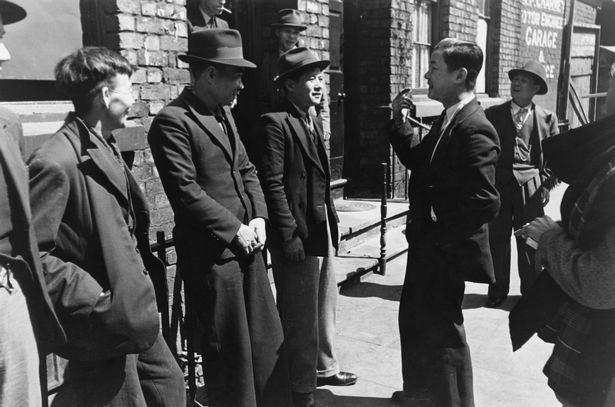 A group of Chinese seamen outside a Chinese hostel in Liverpool. May 1942(Image: Photo by Bert Hardy/Picture Post/Hulton Archive/Getty Images)
A group of Chinese seamen outside a Chinese hostel in Liverpool. May 1942(Image: Photo by Bert Hardy/Picture Post/Hulton Archive/Getty Images)
To mark the 80th anniversary of the end of WWII, China Media Group (CMG) and China Global Television Network (CGTN) are holding a special event at The Bluecoat gallery in Liverpool on Tuesday, August 26, called Echoes of Peace. A panel of global experts will join CGTN anchor Jamie Owen to discuss the crucial – and too often forgotten – role China played in WWII on both the Eastern and Western fronts.
He will also be joined by relatives of some of the thousands of Chinese nationals who spent the war working for the Merchant Navy in Liverpool, only to be forcibly repatriated after the conflict ended. It is a scandal told in CGTN’s award-winning documentary The Secret Betrayal – and one which has only recently been acknowledged by the British government.
Jamie told the ECHO: “It is the story Liverpool’s central place in keeping Britain fed. A substantial amount of the necessities for the war effort came through ports like Liverpool and Liverpool played an enormous part in keeping Britain fed and armed.
READ MORE: Lost Liverpool city centre pub that was ‘different in character’READ MORE: Liverpool’s Old Dock that’s still hidden beneath the city centre
“And a big part of that story was the Liverpool Chinese community. The Chinese were accomplished merchant seamen and they had a long trading relationship with Liverpool.
“By wartime, this turns into something critical – those ships had to get through – so you end up with a social relationship in Liverpool of Chinese and Indian and other nationalities, making friendships, relationships. A lot of these Chinese merchant seamen became boyfriends, husbands, they became fathers. They made lives for themselves in Liverpool during WWII and were an integral part of not just the social fabric, but the engine that, led to victory.”
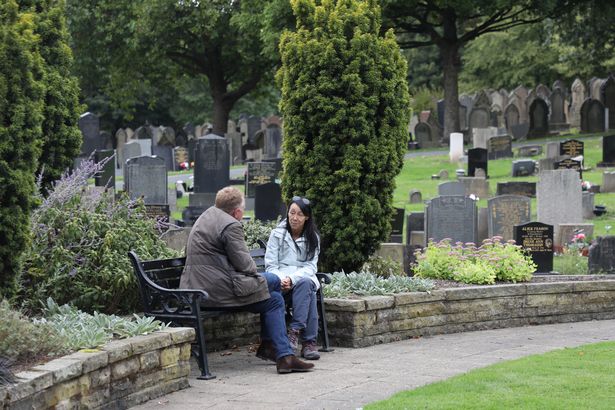 Jamie Owen interviewing Ann Pearson Liverpool Allerton cemetery. Her father is the son of a deported sailor(Image: Photo courtesy of Simon Morris)
Jamie Owen interviewing Ann Pearson Liverpool Allerton cemetery. Her father is the son of a deported sailor(Image: Photo courtesy of Simon Morris)
But in July 1946, the Liverpool Constabulary carried out orders from the British government to indiscriminately round up and forcibly deport thousands of Chinese sailors in Merseyside. Many of the men had contributed to the Allied war effort.
Jamie said it is vital that this history is not forgotten. He said: “The UK was faced with a very stark realisation of finding jobs for the Brits going home in Liverpool. That looks like the deportation of these foreigners, as they were then seen, who were taking up accommodation, who were taking up jobs.
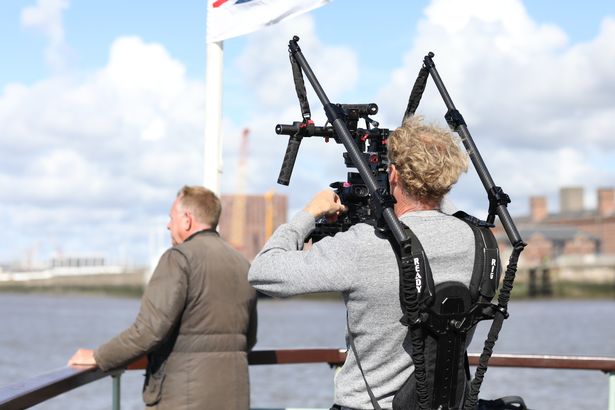 Jamie Owen being filmed on the Mersey Ferry(Image: Photo courtesy of Simon Morris)
Jamie Owen being filmed on the Mersey Ferry(Image: Photo courtesy of Simon Morris)
“These were different times. It’s very easy to read history backwards, but the truth of the matter is Britain got rid of people who had been a central part of winning the war. We met the children and the grandchildren of people who thought they were abandoned in the night.
“Girlfriends, wives woke up in the morning thinking they’d been abandoned by their men, their boyfriends, their husbands – that never happened. They were rounded up cruelly and many of these wives and girlfriends and children never knew what happened to their loved ones.
READ MORE: ‘Rite of passage’ Liverpool nightclub was like an ‘adult funhouse’READ MORE: Lost city centre store that was ‘one of the top names’ in Liverpool
“This is a terrible story of open sores, of cruelty that’s reached across decades that’s never really been apologised for. It was an honour to go into these people’s homes and hear forgotten stories of this forgotten history.”
At the upcoming event in the city, historians Dr Frances Wood and Dr Robert Lyman, along with the Professor of Chinese History at Manchester University, Yangwen Zheng and Spain’s former Foreign Minister Ana Palacio will also consider how lessons of cooperation learned 80 years ago inform 21st century geopolitics. In addition to the panel discussion, CGTN will also be launching a new documentary Witness to War – which tells the story of George Hogg, a journalist and teacher from Hertfordshire who spent the war in China, detailing first-hand the suffering of the Chinese under the Japanese.
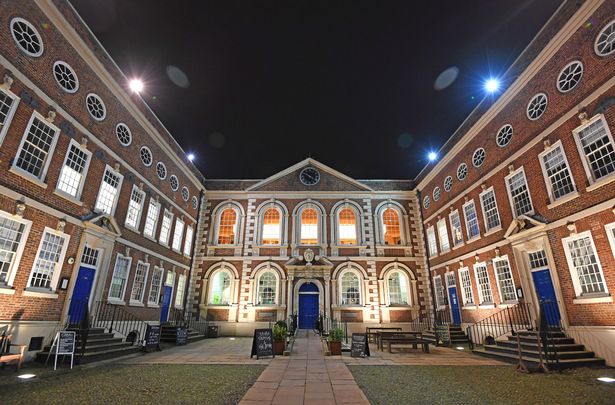 The event will take place at The Bluecoat(Image: Photo by Colin Lane)
The event will take place at The Bluecoat(Image: Photo by Colin Lane)
His extraordinary story is brought to life by his nephew, who will be present at this event, and by the descendants of some of the hundreds of Chinese schoolchildren he saved during the war. The documentary also recreates incredible episodes from Hogg’s wartime experiences with the use of state-of-the-art A.I.
Descendants of others caught up in China’s role in the conflict will also join the audience, including relatives of some of the hundreds of British prisoners of war saved by local Chinese fishermen when the Japanese transport ship Lisbon Maru was torpedoed as it travelled through the East China Sea in October 1942.
Jamie added: “Descendants are actually going to be at the audience, so we’re going to have at least 15 to 20 audience members and it’ll be quite an emotional moment. I think that it’s one of the most profound projects I’ve ever been involved in.”
Echoes of Peace takes place at The Bluecoat in School Lane, Liverpool city centre, on Tuesday, August 26, at 6pm.
